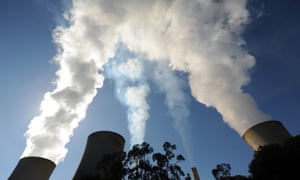Ai Group expresses significant concern with the Morrison government’s controversial plan to underwrite new power generation
A leading business group has expressed significant concern with the
Morrison government’s controversial plan to underwrite new power
generation, noting it could leave taxpayers exposed to liabilities “with
a net present value of billions of dollars”.
The Ai Group has used its submission to flag major problems with the proposal, ranging from its “extremely aggressive” administrative timetable, with projects being drummed up before the next federal election; a lack of obvious “strong independent governance” arrangements, and the lack of an overarching climate and energy policy.
The criticism joins significant pushback from Australia’s power companies, and from lobby groups representing renewable energy, reflecting profound frustration in the business community about the way the Coalition has conducted itself on climate and energy policy.
Only the lobby group representing Australia’s resources giants, the Minerals Council of Australia has, thus far, lent public support to the initiative.The Ai Group has used its submission to flag major problems with the proposal, ranging from its “extremely aggressive” administrative timetable, with projects being drummed up before the next federal election; a lack of obvious “strong independent governance” arrangements, and the lack of an overarching climate and energy policy.
The criticism joins significant pushback from Australia’s power companies, and from lobby groups representing renewable energy, reflecting profound frustration in the business community about the way the Coalition has conducted itself on climate and energy policy.
The Ai Group says an underwriting program to encourage new generation is reasonable in theory, but if it is not well designed then taxpayers are exposed to significant risks, generators can be shielded from market pressures, and special treatment for some generators can deter investment outside the program.
It notes the Australian Competition and Consumer Commission proposed an underwriting program with a low price floor of $45-50 per megawatt hour “that would be unlikely to expose the Commonwealth to much financial risk” – but the Morrison government has ignored those parameters and is pursuing options that “carry much greater risks”.
The submission notes the underwriting program is being carried out in a policy vacuum. The government has indicated generation projects supported through the new underwriting mechanism would need to conform with an objective to reduce electricity emissions by 26% below its 2005 levels by 2030.
But Ai Group says this is an “inadequate approach to integrating emissions and energy policy”. It says generation assets operate for decades “and emissions targets for 2030 – 12 years away – are not an adequate basis for consideration”.
It says Australia has signed up to the Paris targets, and there is “no reason to think that applying a pro-rata – 26% target to the electricity sector is sufficient or efficient”.
“There are strong arguments that deeper reductions in electricity emissions are cheaper and more practical than pro rata reductions across more challenging sectors,” the submission says.
It calls on the Morrison government – which has abandoned emissions reduction after the internal furore over the national energy guarantee – to set a sectoral or economy-wide emissions policy framework to help guide future investment decisions.
“Our strongly preferred solution to this uncertainty is for all sides of politics across the commonwealth and the states to agree an efficient, pro-competitive, stable and scalable framework for integrating climate and energy policy”.
“In the absence of such a framework, government can try to support investment by guaranteeing it against policy risks. But this support may be very expensive, difficult to sustain and insufficiently credible to attract investment”.
Ai Group says the governance arrangements for the scheme are completely unclear, and a process where proposals are considered by the Department of the Environment and Energy, “with possible ad hoc appointment of outside experts on certain matters, and decided on by the minister for energy with, presumably, Cabinet consideration” raises several concerns.
The energy minister, Angus Taylor, has flagged underwriting new coal projects under the scheme, and the possible indemnification of projects from the future risk of a carbon price.
Speculation is rife around the energy sector that the government underwriting proposal will ultimately centre on an extension of the Vales Point power station near Lake Macquarie in New South Wales. It is owned by Trevor St Baker, who was vocal during a recent stakeholder session convened to discuss the underwriting program.
The Ai Group says: “Given that an underwriting program could result in long-term Commonwealth liabilities with a net present value of billions of dollars, a strong governance arrangement is essential for the actual and perceived integrity of the process”.
It points out, for example, that the net present value of fully offsetting the lifetime emissions of a new 2GW high efficiency low emissions (HELE) power plant could be $17.5bn, and more than $1.3bn annually by 2030, depending on what carbon policies are ultimately adopted.
The business group says the Morrison government needs to take a breath and stop attempting to finalise contracts prior to the federal election expected in May 2019.
“Given the low level of detail currently available, the wide scope of possible design options, and the severe risks of poor design to the public purse and the integrity of the electricity market, we strongly recommend that the government slow down”.

No comments:
Post a Comment